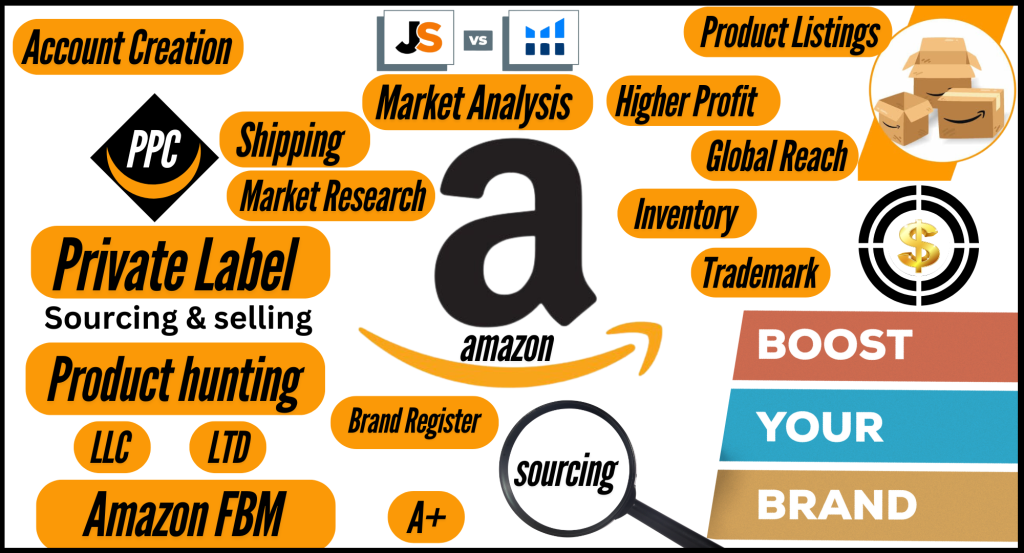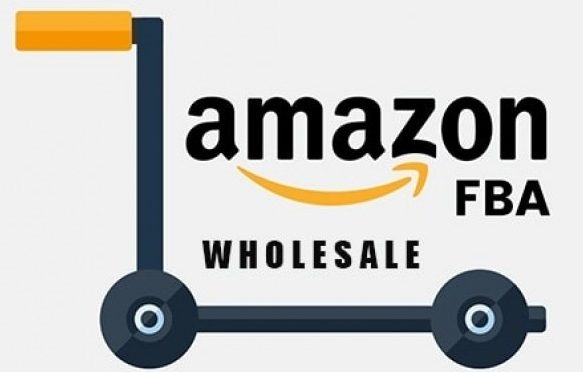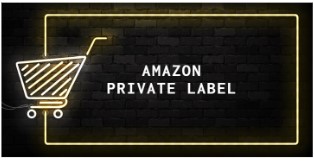
Amazon Private Label Services
Private labeling on Amazon refers to creating and selling your branded products through Amazon’s platform. With Amazon’s expansive reach and resources, it is a lucrative option for businesses looking to build and grow their brand. Here’s a breakdown of Amazon’s private label services and related resources:
1. Overview of Private Label on Amazon
Private labeling involves sourcing products from manufacturers and branding them under your own label before listing them on Amazon for sale. This process offers control over the brand identity, pricing, and marketing.
2. Key Private Label Services and Resources
Amazon Seller Central
- The primary platform for managing private-label products.
- Allows sellers to manage inventory, set pricing, access analytics, and communicate with buyers.
Amazon Brand Registry
- Protects your brand by providing tools to identify and remove infringing listings.
- Offers advanced tools for marketing and improving product listings.
- Requires a registered trademark for enrollment.
Fulfillment by Amazon (FBA)
- Amazon stores, picks, packs, and ships products on behalf of private-label sellers.
- Includes handling customer service and returns.
- Offers Prime-eligible shipping for faster delivery.
Amazon A+ Content (formerly Enhanced Brand Content)
- Provides tools to enhance product listings with premium content like detailed descriptions, videos, and comparison charts.
- Helps increase conversions and build customer trust.
Amazon Advertising Services
- Sponsored Products: Allows private-label sellers to promote their products to appear in search results.
- Sponsored Brands: Creates brand-focused ads that showcase the logo, a headline, and products.
- Amazon DSP: For targeting audiences with display ads both on and off Amazon.
Amazon Vine Program
- A service that connects trusted reviewers with new products to generate reviews.
- Helps private-label products gain traction by gathering genuine feedback.
Amazon Transparency Program
- Product serialization system to prevent counterfeits.
- Scannable Transparency codes ensure customers receive genuine private-label items.
3. Steps to Launch a Private Label on Amazon
- Market Research:
- Identify niche opportunities using Amazon tools like “Amazon Best Sellers” and keyword research tools such as Helium 10 or Jungle Scout.
- Product Sourcing:
- Work with manufacturers (e.g., from Alibaba) to create and source products under your brand name.
- Negotiate terms like minimum order quantity, pricing, and shipping options.
- Trademark Your Brand:
- Obtain a registered trademark to become eligible for Amazon Brand Registry.
- Create Listings:
- Develop optimized product titles, descriptions, images, and keywords.
- Leverage Amazon’s A+ Content for enhanced visuals and storytelling.
- Launch and Promote:
- Use advertising services and promotions to drive sales.
- Offer deals and discounts for early traction.
- Monitor Performance:
- Use Amazon Analytics to track conversions, traffic, and sales.
- Continuously tweak listings and strategies based on performance.
4. Benefits of Private Labeling on Amazon
- Brand Control: Complete authority over product design, pricing, and packaging.
- Higher Profit Margins: By cutting intermediaries, sellers can enjoy better profit margins.
- Exclusivity: Creates a unique selling proposition (USP) as competitors cannot sell your branded product.
- Scalability: With Fulfillment by Amazon (FBA) and other tools, scaling operations becomes easier.
- Global Reach: Sell in multiple markets and leverage Amazon’s vast customer base.
5. Challenges to Consider
- Intense Competition: Many private-label sellers compete in popular niches.
- Upfront Investment: Costs include product development, trademarks, FBA fees, and advertising.
- Inventory Risks: Unsold inventory can accumulate if demand predictions are inaccurate.
- Compliance: Adhering to Amazon’s product compliance policies and marketplace rules is mandatory.
6. Notable Amazon Tools for Private Label Sellers
- Helium 10 and Jungle Scout: Product research and competition analysis tools.
- Amazon Launchpad: A program designed to support emerging brands with enhanced exposure.
- FBA Revenue Calculator: To estimate profit margins after accounting for Amazon’s fees.
7. Success Examples
Several private-label brands, like Anker (electronics) and Rivet (furniture), started as small sellers on Amazon and now have established reputations. Success lies in choosing the right product niche, investing in branding, and utilizing Amazon’s resources effectively.


